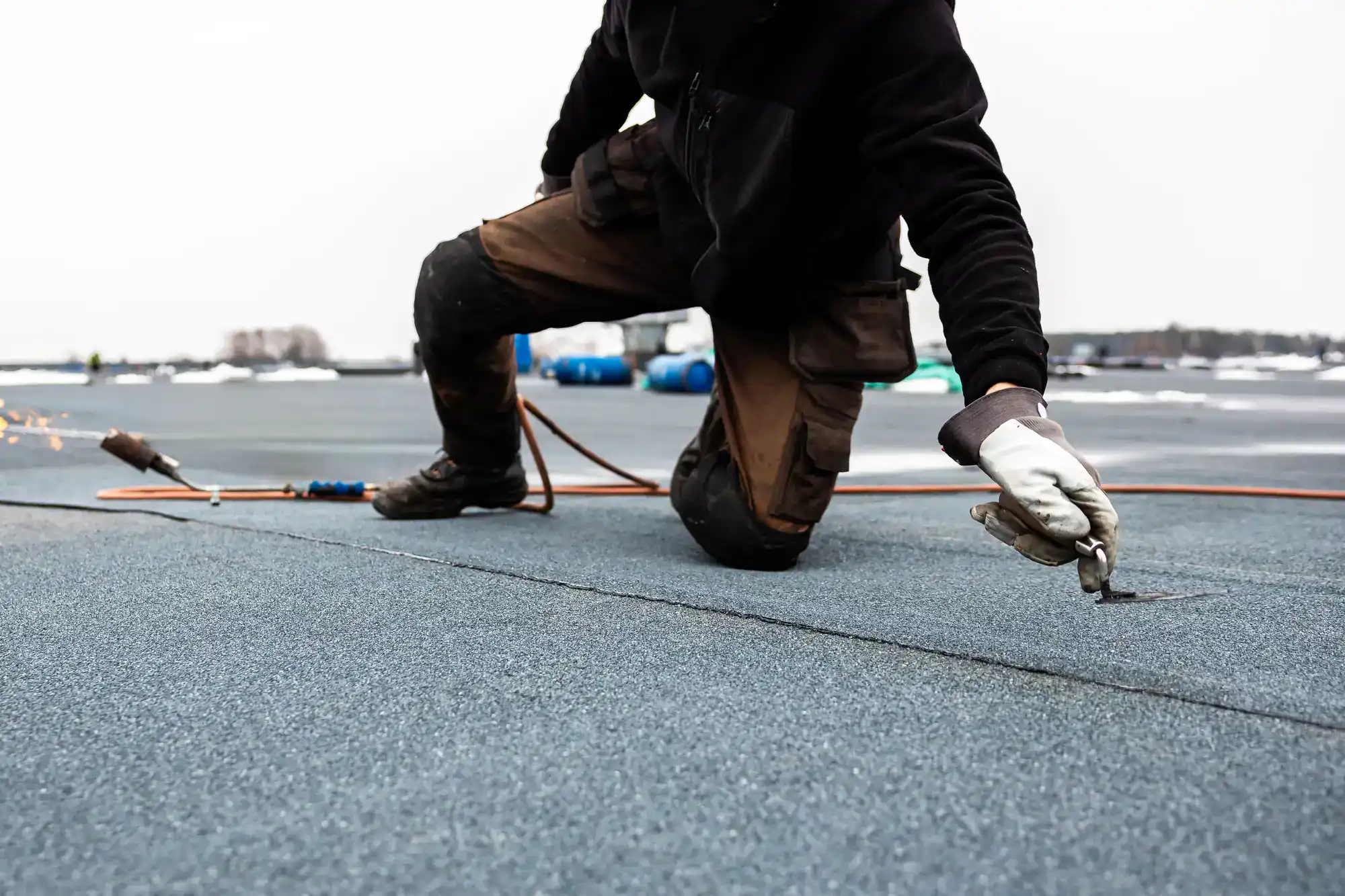
Hear from Our Customers
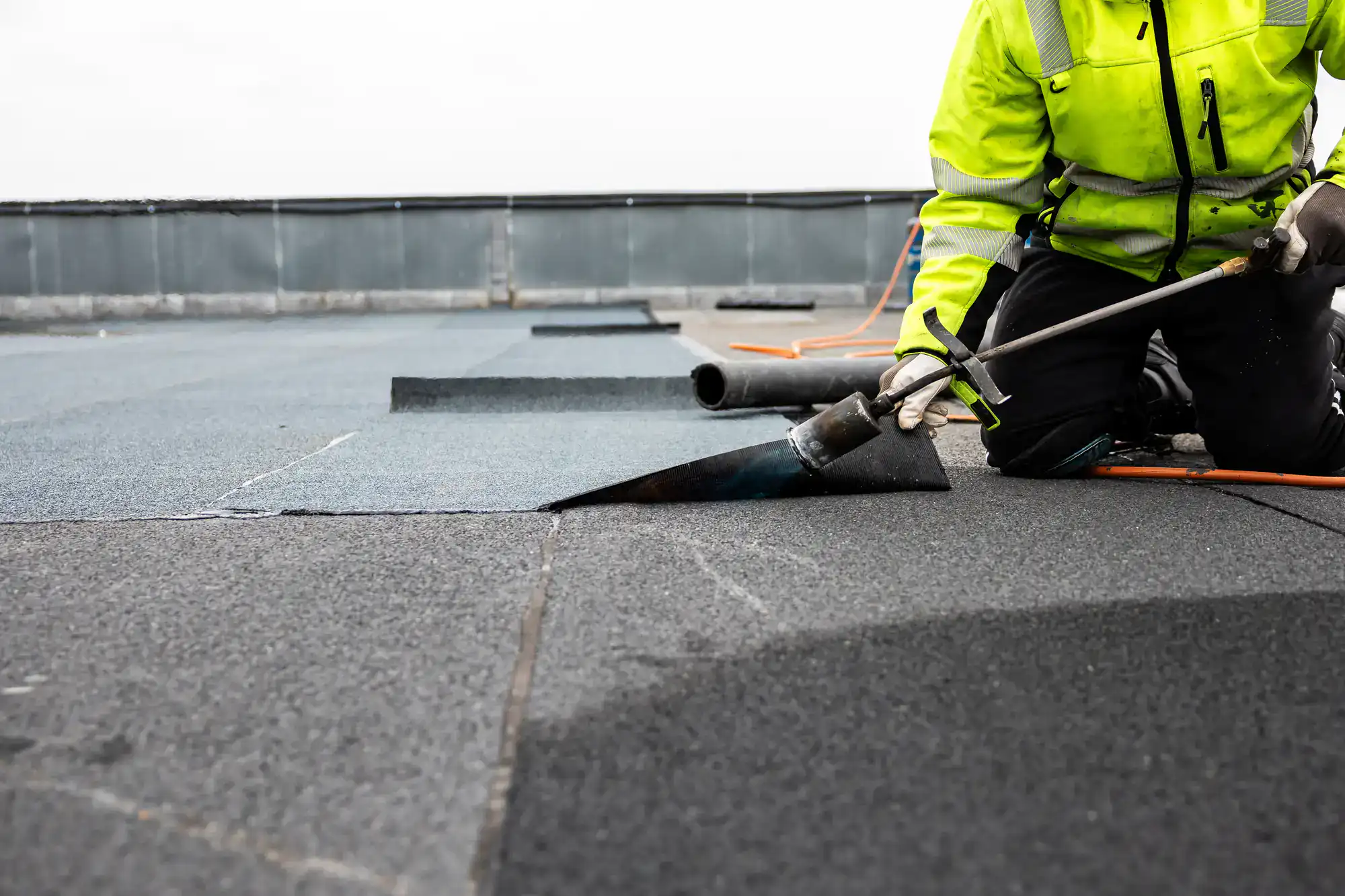
You won’t spend weekends moving buckets around your building anymore. Our flat roofing systems use heat-welded seams and proper drainage design, so water goes where it’s supposed to go—off your roof, not into your space.
No more emergency calls during storms. No more explaining water damage to insurance companies. Just a roof that works like it should, protecting what matters most to you.
Expressway Roofing and Chimney Inc specializes in flat roofing solutions for Northport properties. We understand how Long Island’s coastal climate affects flat roof performance, from UV exposure to storm damage.
Our team handles both residential and commercial flat roofing projects. We’ve seen what works in this area and what doesn’t, which means you get solutions designed for local conditions, not generic fixes that fail in two years.
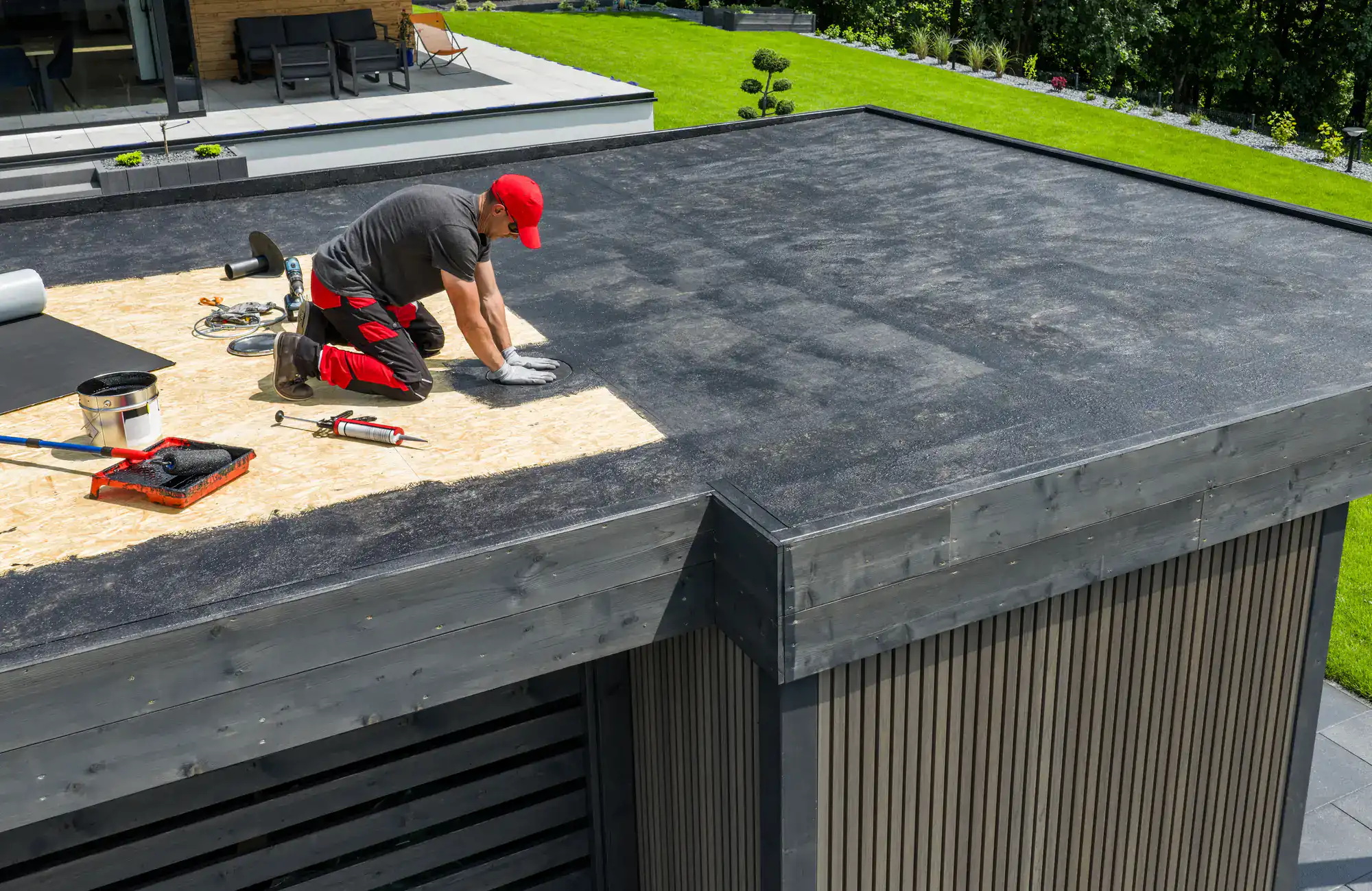
First, we inspect your current roof structure and drainage system. Poor drainage causes most flat roof failures, so we address that before anything else gets installed.
Next, we remove old roofing materials down to the deck if needed, or prepare the surface for a recover system. We install new insulation and the membrane system—whether that’s TPO, EPDM, or modified bitumen depends on your building’s needs.
Finally, we install proper flashing around all penetrations and edges. This is where most contractors cut corners, but it’s also where most leaks start. We do it right the first time.
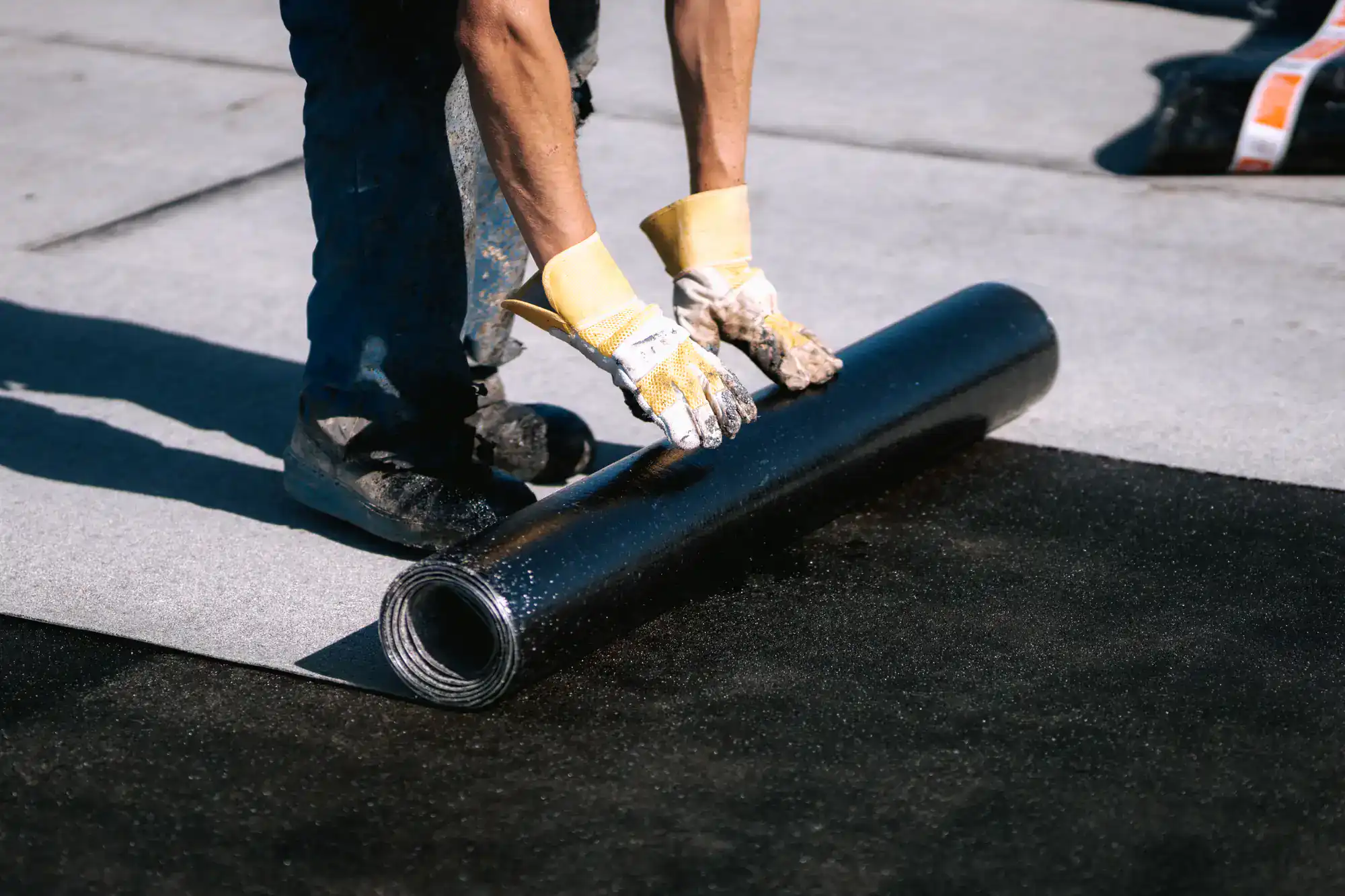
Ready to get started?
We install TPO roofing for energy efficiency and durability. The white membrane reflects heat, reducing your cooling costs during Long Island summers. Heat-welded seams create a completely watertight system.
EPDM rubber roofing works well for residential flat roofs and smaller commercial buildings. It’s flexible, handles temperature changes without cracking, and costs less than other single-ply systems.
Modified bitumen provides excellent puncture resistance for high-traffic roofs. The multi-layer system handles foot traffic better than single-ply membranes, making it ideal for roofs with HVAC equipment or regular maintenance access.
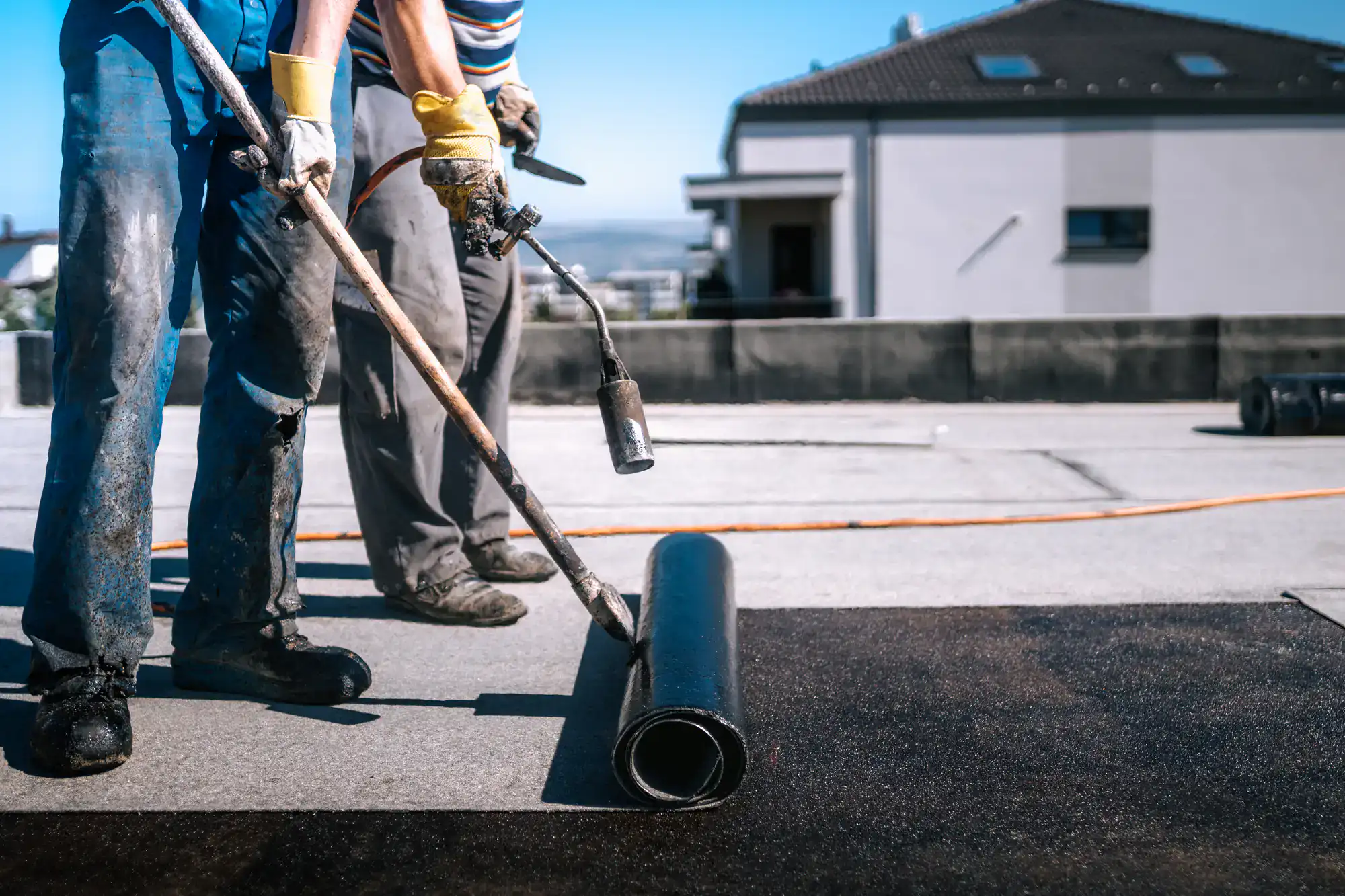
A properly installed flat roof lasts 15-30 years depending on the material and maintenance. TPO and EPDM systems typically last 20-25 years, while modified bitumen can last up to 30 years with proper care.
The key is professional installation and regular maintenance. Routine tasks like clearing debris, inspecting drains, and checking for membrane wear can extend the roof’s lifespan. Homeowners should budget for annual inspections and minor repairs to avoid major expenses down the line.
Long Island’s weather accelerates wear on flat roofs, so regular inspections catch problems before they become expensive repairs.
Most leaks come from incorrectly installed or missing penetration and wall flashings. This happens when contractors rush the job or cut corners on the detail work.
Water pooling is another common problem, which occurs when drainage systems clog or the roof lacks sufficient slope. Standing water can weaken the roof membrane, leading to leaks or structural damage.
Storm damage from high winds can also loosen membrane edges or damage flashing. The key is having these areas properly sealed during installation and maintained over time.
TPO works better for larger roofs where energy efficiency matters. The white membrane reflects heat and the heat-welded seams create superior waterproofing. TPO utilizes molecular welding, and when trained properly, instant bonding through heat welding is achieved.
EPDM costs less upfront and works well for smaller residential flat roofs. It’s the most popular flat roofing material for residential roofing because it’s completely black and won’t get visibly dirty. It also provides heating benefits because it absorbs the sun.
The choice depends on your building size, budget, and energy efficiency goals. We’ll recommend the best option based on your specific situation.
A re-roof with minimal penetrations and walls and an 8-year warranty costs about $2.50 to $3.50 per square foot. However, costs vary based on roof size, material choice, and complexity of the job.
Complete replacements can cost between $9 and $20 per square foot, depending on size, height, layout, and specifications. In some cases, where the roof is not severely damaged, maintaining the existing membrane and applying coatings can extend the roof’s life, costing between $5 and $8 per square foot.
We provide detailed estimates that break down material and labor costs, so you know exactly what you’re paying for.
Yes, we handle both residential and commercial flat roof repairs. Commercial roofs often have more complex drainage systems and equipment penetrations, which require specialized expertise.
Door access panels, seams in HVAC ducts, and pitch pockets contribute to 50% of commercial roof leak repairs. Roof perimeter coping and roof drains account for 40% of service calls, with only 10% of leaks resulting from failed roofing.
We understand these common failure points and address them during repairs to prevent recurring problems. Our team has the equipment and training to work safely on commercial buildings.
Cleaning organic debris from gutters and leader systems is obvious, but it’s also vitally important to remove debris from roof areas as well, such as flat roofs, crickets, valleys and around skylights.
Inspect drains and scuppers twice yearly to prevent clogs that cause water pooling. Check membrane seams and flashing for any separation or damage, especially after storms.
Our maintenance programs include cleaning, debris removal, seam resealing, drainage inspections, and protective coating applications—preventing small issues from turning into major repairs. Regular maintenance extends roof life and prevents emergency repairs.